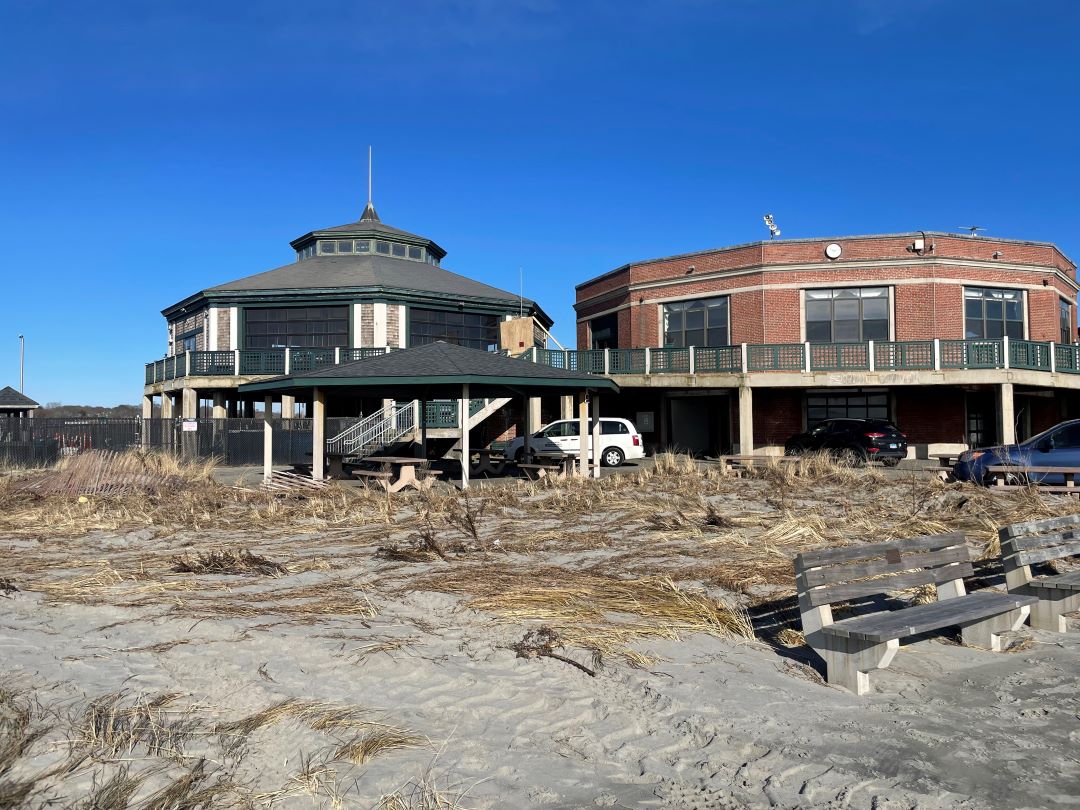Brown President Supports Carbon Tax But Not Divestment
February 4, 2019
PROVIDENCE — A tax on fossil fuels to combat climate change recently received an endorsement from Brown University president Christina Paxson, but the prospect of seeing one soon is unlikely.
A carbon tax, Paxson said, is needed to counteract the health, safety, and environmental side effects of fossil fuels, known as externalities.
“Market prices don’t reflect the damage that is being done,” Paxson said during a Feb. 1 climate conference at Brown University’s Watson Institute for International and Public Affairs.
As an economist and former professor of economics, Paxson pointed to the long-established concept of using taxes and other policies to offset externalities.
“This isn’t new, this is very old. We’ve known it for a long time,” she said.
However, she has no intention of advocating for a carbon tax initiative through Brown or supporting a statewide fee.
Instead, Paxson signed on to a bipartisan plan, which was recently endorsed by all living former chairs of the Federal Reserve and published in The Wall Street Journal. The pledge, which can only be endorsed by economists, is the latest call to action from a 2017 proposal by the Climate Leadership Council (CLC), a conservative think tank comprised of Republican policymakers and funded by the likes of ExxonMobil, Shell, and BP. The World Wildlife Fund, Conservation International, and The Nature Conservancy also endorse the plan.
The CLC proposal assesses a $40 fee on each ton of carbon dioxide emission from fossil fuels entering the U.S. economy through a mine, well, or port. The tax is a market-based inducement to cut fossil-fuel use and emissions by making alternatives more affordable.
The collected tax revenue would be sent to anyone with a Social Security number via quarterly dividend checks. The carbon fee increases over time, but in the first year projects a payout of about $500 per person.
To appeal to conservatives, CLC insists its plan will not create additional government programs. In exchange for paying fees, fossil-fuel companies will have air pollution regulations loosened, such as those imposed by the Clean Power Plan. However, the CLC argues that the emissions-reduction targets in its plan will be more aggressive than the Obama-era rules.
Local proposals, such as the Energize Rhode Island: Clean Energy Investment and Carbon Pricing Act, call for a statewide or regional fee on carbon emissions with a portion of the funds dedicated to subsidizing renewable-energy and energy-efficiency projects and paying a dividend to businesses and residents. Advocates say a statewide carbon tax would prompt other states to pass similar carbon-fee measures.
The Rhode island plan has made little headway in the General Assembly since it was introduced. Gov. Gina Raimondo has offered mixed support for the idea, saying she prefers a regional or national plan.
In Washington, D.C., a bill sponsored by Sen. Sheldon Whitehouse, D-R.I., is similar to the CLC proposal but it also directs 20 percent of the tax revenue to states for job training and energy-reducing programs for low-income and rural households.
Whitehouse said a carbon tax could be merged with recent pleas for a Green New Deal. He noted that none of the efforts will pass until leadership changes in the Senate and President Trump leaves office. When prospects improve for passing legislation, environmentalists should stop infighting, he said.
“Please, please, please let us not let our different views on what the bill should look like divide us and prevent us from being in a winning position to get a damn bill,” Whitehouse said.
Nope on divestment
Despite a slight recent resurgence in university divestment from fossil fuels, such as Middlebury College, Paxson said she won’t renew efforts to divest Brown’s endowment.
“Nope. Nope. We rejected that,” Paxson told ecoRI News.
In 2013, Brown rejected a proposal to divest from the 15 largest coal companies in the United States. Paxson said at the time that the investments were too small to have an economic impact on the industry.
Middlebury rejected divestment in 2013 but changed course this year after the school included the policy in a broad package of environmental reforms. In 2015, the Rhode Island School of Design became the state’s only university to divest from fossil fuels.
Paxson’s office, however, paid consultants to manage a statewide climate-reduction plan with faculty and students. The legislation led to the passage of the Resilient Rhode Island Act of 2014. The law established nonenforceable guidelines for climate-emission reductions and created an oversight body, the Executive Climate Change Coordinating Council.
Paxson said the legislation was a good initial act but acknowledged that “it’s not a good final step and we need to do more to put teeth into that legislation to make sure that we’re really protecting this state from the effects of climate change.”
Renewable power
Paxson said no one should wait for Congress to enact a carbon tax. Brown professor J. Timmons Roberts underscored that point by saying that the world needs to be at net-zero emissions by as soon as 2030.
Paxson applauded the university’s recent purchase of renewable energy from a planned solar facility in Rhode Island and a Texas wind facility. This low-emission energy will replace the electricity Brown receives from the regional power grid, but won’t offset other fossil fuels used on campus.
The 50-megawatt solar facility is slated for a 240-acre former gravel and sand quarry in North Kingstown. It’s currently the largest proposed solar farm in Rhode Island. Brown University has praised the project for a low amount of clearing and the benefits to neighbors who will no longer endure noise and dust from a quarry operation.
The two renewable-energy projects are expected to push Brown beyond its goal of reducing campus emissions by 42 percent by 2020. The university aims to eventually decarbonize its campus, including its heating, cooling, and vehicles.




I think the Brown President has the right emphasis, rather than feel-good disinvestment that has others own the fossil stocks but doesn’t reduce consumption by even one barrel, she actually supports reducing fossil fuel demand by purchasing renewable energy, and by supporting a fee on fossil fuel use. Also note Brown offers free transit passes for all its students, faculty, and staff. In contrast, the public universities provide free parking for faculty and staff (and students too at URI-Providence) and no transit incentives, despite good transit access to its locations.
"Too small to have an impact" is a surprisingly silly remark from an educated person. The investment, or lack thereof, however small, in fossil fuels certainly does have an impact on the reputation of Brown University. That argument could be used in court by a shoplifter claiming that what was stolen was "too small to have an impact". Some hands may be dirtier than others, but they are still dirty hands.
Divestment advocates have always made it clear that the intent was to first use churches and schools to develop a social understanding of fossil fuel money as dirty and immoral, and then leverage that social understanding to pressure politicians to reject fossil fuel money, which is the real barrier to climate progress. That is now already happening as the campaign has entered a new phase, making it completely obvious that divestment is a social and political strategy. So for Paxton to continue to reject divestment because it falls short as a purely economic lever is blatantly disingenuous. She can disagree with the strategy, but she should have the intellectual courage to do so without dishonesty and evasion.
Newsflash to Brown University President Christina Paxton: if everyone thinks like she does that individual impacts on emissions don’t matter, the students she is educating won’t have much of a future.